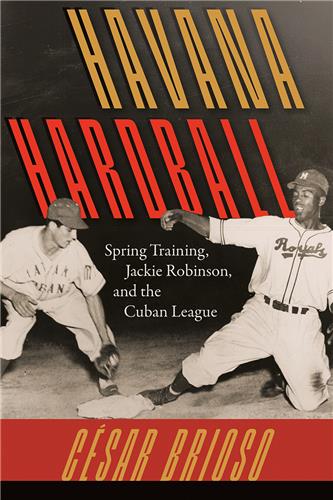This volume offers new insights into revolutionary Cuba’s global influence by shifting the focus from high-level political leaders to overlooked dimensions such as everyday lives, family dynamics, and notions of gender and sexuality.
Browse by Subject:
Please note that while you may order forthcoming books at any time, they will not be available for shipment until shortly before publication date
Havana Hardball captures the excitement of baseball in 1947 Cuba, where the most memorable season in the history of the Cuban League coincided with Jackie Robinson's spring training on the island before he made his major-league debut with the Brooklyn Dodgers.
This book examines the evolution of queer Dominican literary and cultural production from the 1950s to the present, tracing how same-sex desire and gender nonconformity have been negotiated both tacitly and overtly across this time period.
This book explores how northeastern Cuba became a hub of international solidarity and transnational movements in the 1920s and 1930s, showing how the Oriente Province emerged as a focal point for global visions of resistance.
Through the story of Manuel Rionda, a leader in the international sugar trade in the first half of the 20th century, this book offers an in-depth view of Cuba's sugar industry and economy before the Cuban Revolution.
This book tells the modern-day adventure story of Brothers to the Rescue and the Cuban refugees they flew to safety, written in collaboration with the group's founder, José Basulto.
In this memoir, Dedé Mirabal offers an intimate account of the lives and legacy of her sisters Patria, Minerva, and María Teresa Mirabal, Dominican revolutionaries who were assassinated in 1960 by order of dictator Rafael Trujillo. This is the first English translation of Dedé’s story, introducing new readers to a tragedy and international outcry that heralded the fall of the Trujillo dictatorship.
Delving into the many dance traditions of the Caribbean islands, this book connects these dance forms with the rich multicultural histories and complex identities of the region
In this book, Raquel Otheguy argues that Afro-descended teachers and activists were central to the development of a national education system in Cuba and influenced the trajectory of public school systems in the broader Americas.











